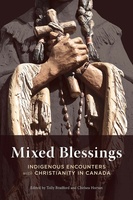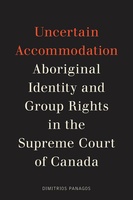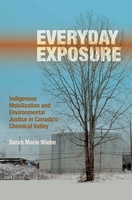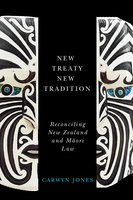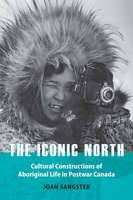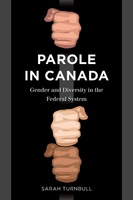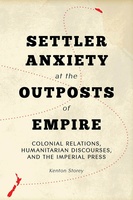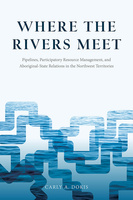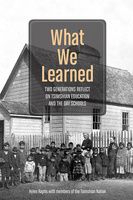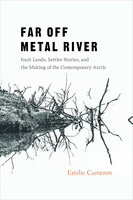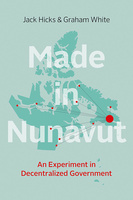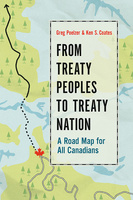Learning and Teaching Together
Weaving Indigenous Ways of Knowing into Education
An inspirational account of how a group of pre-service teachers, working alongside Indigenous wisdom keepers in British Columbia, developed an indigenist approach to education that can be applied in a wide variety of classrooms.
Mixed Blessings
Indigenous Encounters with Christianity in Canada
This diverse and cutting-edge collection offers fresh insights into the complex and charged subject of Indigenous encounters with Christianity in Canada from the 1600s to the present day.
Uncertain Accommodation
Aboriginal Identity and Group Rights in the Supreme Court of Canada
A bold analysis of what happened when Canada attempted to extend group rights to Aboriginal people in the early 1980s and why it went wrong.
Everyday Exposure
Indigenous Mobilization and Environmental Justice in Canada’s Chemical Valley
Everyday Exposure documents the adverse health effects experienced by Aamjiwnaang citizens in the heart of Canada’s Chemical Valley and argues for a transformative and experiential “sensing policy” approach that takes the voices and experiences of Indigenous citizens seriously.
New Treaty, New Tradition
Reconciling New Zealand and Maori Law
Maori author and legal scholar Carwyn Jones provides a nuanced analysis, enhanced by storytelling, of the New Zealand land claims process to draw attention to the cultural implications of Indigenous self-determination, settlement negotiations, and reconciliation projects around the globe.
White Settler Reserve
New Iceland and the Colonization of the Canadian West
This innovative history of a reserve for Icelandic settlers connects the dots between immigration and Indigenous dispossession in western Canada.
The Iconic North
Cultural Constructions of Aboriginal Life in Postwar Canada
The Iconic North explores how the “modern” South crafted cultural images of a “primitive” North that reflected its own preconceived notions and social, political, and economic interests.
Parole in Canada
Gender and Diversity in the Federal System
Parole in Canada explores how concerns about aboriginality, gender, and the multicultural ideal of “diversity” have altered parole policy and practice – and asks whether these changes go far enough.
Settler Anxiety at the Outposts of Empire
Colonial Relations, Humanitarian Discourses, and the Imperial Press
A fascinating look at how humanitarian language was used by the colonial press in New Zealand and on Vancouver Island to justify ongoing settler expansion while allaying fears of Indigenous resistance.
Fragile Settlements
Aboriginal Peoples, Law, and Resistance in South-West Australia and Prairie Canada
Fragile Settlements compares the historical processes through which British colonial authority was asserted over Indigenous people in southwest Australia and prairie Canada from the 1830s to the early twentieth century.
Where the Rivers Meet
Pipelines, Participatory Resource Management, and Aboriginal-State Relations in the Northwest Territories
An examination of Sahtu Dene participation in the assessment of the Mackenzie Gas pipeline and other resource extraction projects, this book provides an in-depth account of the workings and effects of participatory environmental assessment in the Canadian North and its implications for the legitimization of resource co-management.
What We Learned
Two Generations Reflect on Tsimshian Education and the Day Schools
Moving beyond the more familiar stories of residential schools, two generations of Tsimshian students recall their experiences attending day and public schools in northwestern British Columbia.
Far Off Metal River
Inuit Lands, Settler Stories, and the Making of the Contemporary Arctic
Drawing on the story of the 1771 Bloody Falls massacre, human geographer Emilie Cameron explores the relationship between stories and colonialism, challenging readers to examine their perceptions of the contemporary Arctic and its peoples.
Made in Nunavut
An Experiment in Decentralized Government
Made in Nunavut provides a definitive account of how an innovative government was designed and implemented in Canada’s Eastern and Central Artic.
From Treaty Peoples to Treaty Nation
A Road Map for All Canadians
From Treaty Peoples to Treaty Nation is essential reading for all Canadians who want to understand how Canadian political and economic systems can accommodate Aboriginal aspirations and ensure a better future for all Canadians.


